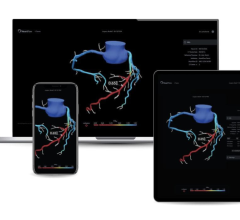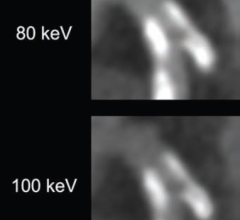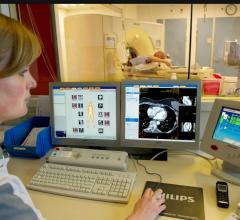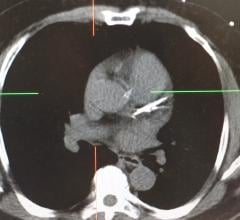
A key slide from Elnabawi's presentation, showing cardiac CT plaque evaluations, showing the impact of psoriasis medication on coronary plaques at baseline and one year of treatment. It shows a reversal of vulnerable plaque development.
May 14, 2018 – New clinical evidance shows common therapy options for psoriasis (PSO), a chronic inflammatory skin disease, can help reduce coronary plaque. The authors found that not only do the treatments reduce the volume of the plaque, but also the plaque becomes less inflammatory over time, harboring fewer characteristics prone to rupture and cause a heart attack. It is the first-in-human observational study demonstrating that treating remote inflammation in the body can modulate coronary disease. It was presented at the 2018 Society for Cardiovascular Angiography and Interventions (SCAI) Scientific Sessions by Research Fellow Youssef Elnabawi from the National Heart, Lung, and Blood Institute in Bethesda, Maryland.[1]
In the United States, there are about 150,000 new cases of PSO every year, and the disease affects more than 7.5 million people.[2] It is associated with an accelerated risk of myocardial infarction,[3] and has increased risk for atherogenesis, which is the development of plaque within the walls of blood vessels.[4] For the first time, recent evidence demonstrated a significant reduction in adverse cardiovascular events targeting interleukin-1 beta (IL1B), a cytokine that is central to the inflammatory response.[5]
The authors worked to identify if treatment of the inflammatory skin disease potentially affected coronary plaque. Anti-tumor necrosis factor (TNF) agents are commonly used, biologic, and FDA-approved immunomodulatory treatment options for PSO. More than 80 consecutive patients were stratified by biologic treatment (predominantly anti-TNF; n=57) and non-biologic treatment (n= 27). Non-calcified burden (NCB), plaque volume (PV), and maximal artery stenosis in the proximal vessels (diameter more than 2mm) were blindly assessed based on coronary CT angiography using dedicated software.
The patients were middle-aged and at low cardiovascular risk by traditional risk scores. At one-year, the plaque volume in the biologic treated group decreased by 40 percent (p=0.002), a finding not observed in those without treatment (p=0.04). Trends in NCB and maximal stenosis were significant and consistent with PV in both groups. Furthermore, change in PV was also positively associated with a change in IL1B (β=0.56, p=0.03), even after adjustment for traditional cardiovascular risk factors and statin use.
“To see a reduction in coronary plaque after just one year of biologic therapy alone is incredible and very assuring. It’s the first time we’re seeing treatment of a skin disease with biologic therapy have an impact specifically on plaque in the coronary,” said Nehal N. Mehta, M.D., MSCE, FAHA, the principal investigator of the study from the National Heart, Lung, and Blood Institute. “Our study results further emphasize the importance of patients maintaining and treating psoriasis to decrease the risks of adverse cardiovascular events occurring. This also opens the door for us to look at other disease states and see how anti-inflammatory therapy options could impact coronary plaque over time.”
The authors of the study note that future, randomized studies are warranted to confirm these observational findings and to better understand how treatment with anti-inflammatory medications modulates coronary plaque volume over time.
Complete listing of SCAI 2018 late-breaking trials with links to articles.
References:

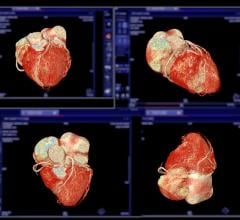
 March 07, 2024
March 07, 2024 
